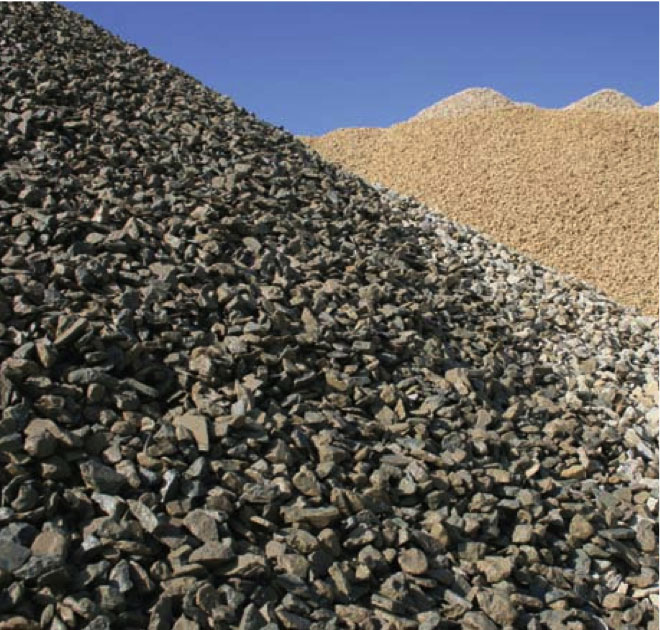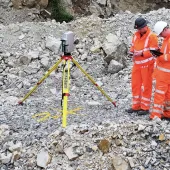MPA Marks First Anniversary With Call To Arms

The Mineral Products Association (MPA) has marked the conclusion of a highly successful first year with the launch of The MPA Agenda, a five-point plan for government action which identifies the key strategic priorities to allow the industry to support and help deliver the Government’s economic, environmental and social aims and aspirations.
Nigel Jackson, chief executive of the MPA, said: ‘2010 is proving to be a significant year in many ways. Uppermost in our minds are the economic and market conditions within which our members operate, which are likely to remain difficult and are unlikely to show any obvious signs of sustained improvement for some time to come. This economic uncertainty, coupled with the lead up to the election, risks creating policy and development inertia as a new balance of power emerges.
‘We want to put forward a positive agenda for our industry and government. The MPA is not presenting government with a shopping list of demands, but setting out how we can contribute to improving our built environment and enhancing our natural environment. But to do this the relationship with government is critical, as is their response to a number of key issues. We are frustrated with the volume and quality of regulation, taxation and a planning system which is not fit for purpose. Government and industry need to work together to improve these areas. We both have responsibilities to make things work better.
‘The mineral products industry has much to offer in the next five years. Mineral products will be needed not just for construction and manufacturing, but because they offer sustainable solutions to the challenges of creating and maintaining our built environment and coping with the effects of climate change and a growing population.
‘The MPA and member companies will be taking messages to political audiences before and after the election and ensuring that we reach constituencies throughout the country. The huge turnover of MPs that will take place at the general election provides a great opportunity for the mineral products and construction industries to communicate the essential nature of our products and the importance of our industries to the economic recovery and wider policy delivery.
‘A key early issue will be the operation of the planning system. We are ready to work with any future administration to ensure that there is sufficient access to the minerals required to support the sustainable development of the UK. However, as the recent Conservative Green Paper on planning demonstrates, our ability to access reserves and supply could easily be jeopardized by plans for increased ‘localism’, third party rights of appeal and a weakening of the powers of the planning inspectorate.
‘Looking at the MPA’s Agenda, any new government will have ambitions to improve the quality of our housing stock, infrastructure and public services in the longer term, even allowing for public spending constraints. We know, for example, that our energy-generation and supply networks will require over £200 billion of investment in low-carbon infrastructure over the next 10–15 years. This is not going to be possible without significant volumes of mineral products, and the mineral planning system must allow such strategic supply to take place without unreasonable constraints from a locally focused system.
‘The increasing pace and range of regulation, especially that relating to water licensing, waste management and mine waste management, also means that we will need to be constantly vigilant and united.
‘This landmark first year has seen the creation, launch and rapid evolution of the MPA. One year on we are able to represent our growing membership across the full mineral products spectrum. Our stakeholders, particularly government and the devolved administrations, need and want to hear ‘one clear voice’. I believe we now have one and our future focus is to make sure it is heard in all the right places.’
The 5 MPA Agenda headlines are:
1. Economic conditions that support investment:
As the major supplier to the manufacturing and construction industries, we have been particularly hit hard by the recession. A stable economy is now fundamental, as is a less-penal attitude to the industry’s tax burden. Only if government commits to, and delivers, long-term investment will MPA members, particularly those with international operations, have confidence to spend in the UK.
2. Better government support for an essential industry:
The UK needs a secure long-term supply of mineral products that enhance sustainable development. Our roads, sewers and other vital industrial and commercial infrastructure are in need of continual development, our housing stock needs to grow to meet demand and there is a constant need for repair and maintenance of our infrastructure and buildings. The industry needs more effective government sponsorship and a co-ordinated approach from its departments based on heightened awareness. Operators will deliver sustainable built-environment solutions in return for a more rigorous science-based evaluation of the credentials of competing materials.
3. A reasonable ‘licence to operate’:
The UK can only enjoy the benefits of its mineral products if it has a sound licence to operate that provides reasonable access to the mineral resources upon which its downstream manufacturing activities and the construction industry rely. That means an effective, simpler, more consistent and faster planning system based on realistic assessments of future demand.
4. Proportionate legislation and regulation:
Proper regulation of industry is important, but the mineral products sector is faced with an overwhelming and often conflicting volume. The cumulative burden is massive. New legislation must be fit for purpose and not unfairly ‘gold plated’ when transposed from Brussels to the UK.
5. Recognition of progress:
The UK mineral products industry is a world leader in the quality of its operations and best in Europe at recycling and resource efficiency. The industry is also a big contributor to overcoming the challenges of climate change. It needs recognition for its progress and for the essentiality of its products. As an indigenous industry that underpins the nation’s manufacturing and construction industries with £5 billion worth of materials annually, and provides direct and indirect jobs for over 60,000 people, mineral products will be in the engine room helping to drive recovery.
To view the whole document visit: www.mineralproducts.org; or telephone MPA on tel: (020) 7963 8000.








